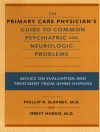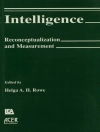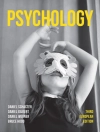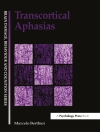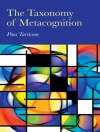Erich Fromm was a political activist, psychologist, psychoanalyst, philosopher, and one of the most important intellectuals of the twentieth century. Known for his theories of personality and political insight, Fromm dissected the sadomasochistic appeal of brutal dictators while also eloquently championing love—which, he insisted, was nothing if it did not involve joyful contact with others and humanity at large. Admired all over the world, Fromm continues to inspire with his message of universal brotherhood and quest for lasting peace.
The first systematic study of Fromm’s influences and achievements, this biography revisits the thinker’s most important works, especially Escape from Freedom and The Art of Loving, which conveyed important and complex ideas to millions of readers. The volume recounts Fromm’s political activism as a founder and major funder of Amnesty International, the National Committee for a Sane Nuclear Policy, and other peace groups. Consulting rare archival materials across the globe, Lawrence J. Friedman reveals Fromm’s support for anti-Stalinist democratic movements in Central and Eastern Europe and his efforts to revitalize American democracy. For the first time, readers learn about Fromm’s direct contact with high officials in the American government on matters of war and peace while accessing a deeper understanding of his conceptual differences with Freud, his rapport with Neo-Freudians like Karen Horney and Harry Stack Sullivan, and his association with innovative artists, public intellectuals, and world leaders. Friedman elucidates Fromm’s key intellectual contributions, especially his innovative concept of ‘social character, ‘ in which social institutions and practices shape the inner psyche, and he clarifies Fromm’s conception of love as an acquired skill. Taking full stock of the thinker’s historical and global accomplishments, Friedman portrays a man of immense authenticity and spirituality who made life in the twentieth century more humane than it might have been.
Inhoudsopgave
Foreword, by Gerald N. Grob
Acknowledgments
Prologue: Writing Lives
Part 1: Germany
1. The Unsteady Apprentice
2. Frankfurt Scholar
Part 2: The Americas
3. The Americanization of a European Intellectual
4. Escape from Freedom
5. Clinician and Ethicist
6. To Love and to Mentor
7. Politics and Prose
Part 3: Global Citizenship
8. Prophecies for a Troubled World
9. A Third Way
10. ‘Life Is Extravagance’: Almost
11. Hope and Stasis
12. Love and Death
A Bibliographical Note
Notes
Index
Over de auteur
Lawrence J. Friedman is a professor in Harvard University’s Mind/Brain/Behavior Initiative and a professor emeritus at Indiana University. The author of eight scholarly books and more than fifty articles, he has lectured in eleven countries and was named International Writer of the Year for 2003 by the International Biographical Center. His works include
Identity’s Architect: A Biography of Erik Erikson;
Menninger: The Family and the Clinic;
Gregarious Saints: Self and Community in American Abolitionism; and
The White Savage: Racial Fantasies in the Postbellum South.



